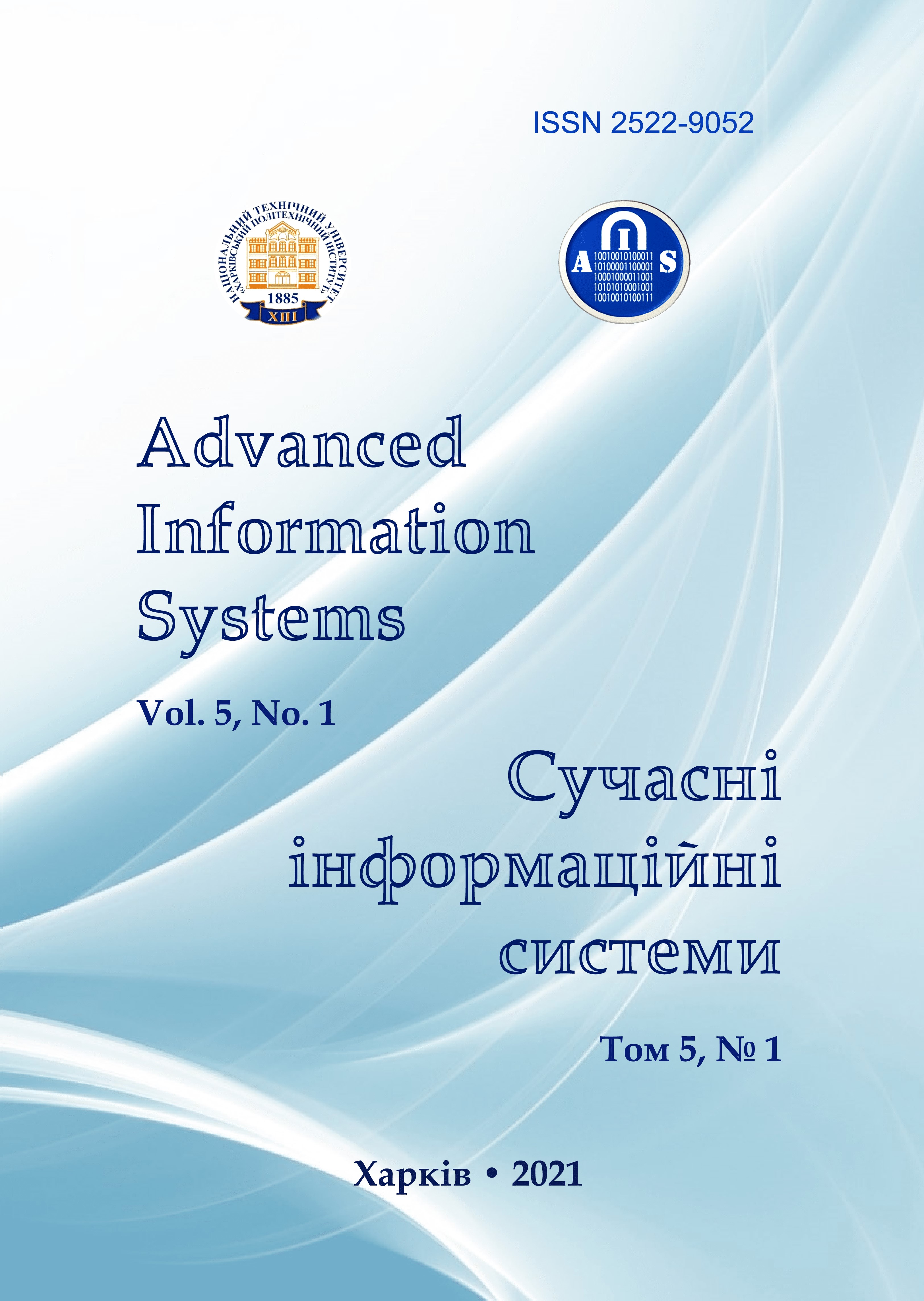ANALYSIS OF SENSITIVITY OF TARGET TRACKING SYSTEMS TO EXTERNAL INTERFERENCE IN MULTICHANNEL RADARS WITH FIXED PARAMETERS
Main Article Content
Abstract
The multichannel and fixed parameters radars for tracking targets with the phased array antennas are widely used in modern military surveillance systems. The modular integration of a phased antenna array with digital processors allows to realize the command and control functions of antenna patterns for tracking multiple targets in the time resolution modes. Tracking of the air targets in range, radial speed and angular coordinates of evaluations and azimuth is provided by means of the multichannel radars without adaptation modes to the characteristics of external influences. Thus, adjusting the algorithms of tracking systems to the maximum maneuverability of the air targets can lead to a significant reduction in the accuracy of surveillance in comparison with the potentially achievable accuracy for such radars of tracking the linear flight targets in the long duration of time. In the case of adjusting the algorithms of tracking systems to either low intensity of flying targets, or lack of the aircraft maneuvering, it is possible to significantly increase the error of the aircraft flying information, and as a result to have a disruption of tracking the air targets. The increase in the parameters of the tracking error in relation to the influence of external interference were obtained as a result of the study. As a result of research, it is possible to assess the feasibility of adapting to certain characteristics of external influences, and provide recommendations for selecting and fixing the parameters of algorithms of tracking systems to ensure their versatility to surveillance targets with both high maneuverability, and implementing the stealth technology.
Article Details
References
Singer, R.A. (1971), “Evaluation of the characteristics of the optimal filter for tracking a piloted target”, Foreign radio electronics, No. 8, pp. 40–57.
Sage, E. and Mels, J. (1976), The theory of evaluation and its application in communication and management, Svyaz, 496 p.
Alekseychev, D.D. and Kazakov, A.A. (1979), Automatic control and regulation of radio engineering systems. Part 3. Optimization of automatic control systems, VIRTA PVO, Kharkiv, 149 p.
Kovalchuk A.A. (2010), “Improving the stability of tracking maneuvering targets at radial speed using an adaptive parallel filtration algorithm”, Zbirnik naukovikh prats HUPS, Issue 1(23), HUPS, Kharkiv, pp. 55–58.
Khismatulin V.S., Sachuk I.I. and Kovalchuk A.A. (2000), “Organization of observation of an aerodynamic target with sufficient accuracy”, Bulletin of Kharkiv State Polytechnic University, Issue 125, KHSPU, Kharkiv, pp. 13–17.
Shirman Y.D. (2007), Radio electronic systems. Bases of construction and theory. Reference book, Moscow, 512 p.
Kovalenko, А. and Kuchuk, H. (2018), “Methods for synthesis of informational and technical structures of critical application object’s control system”, Advanced Information Systems, Vol. 2, No. 1, pp. 22–27, DOI: https://doi.org/10.20998/2522-9052.2018.1.04.
Sviridov, A., Kovalenko, A. and Kuchuk, H. (2018), “The pass-through capacity redevelopment method of net critical section based on improvement ON/OFF models of traffic”, Advanced Information Systems, Vol. 2, No. 2, pp. 139–144, DOI: https://doi.org/10.20998/2522-9052.2018.2.24.
Kuchuk G.A., Mohammad A.S. and Kovalenko, A.A. (2011), “Method for reducing data transmission time in a wireless network”, Control, navigation and communication systems, No. 3 (19), pp. 209-213.
Nechausov A., Mamusuĉ I. and Kuchuk N. (2017), “Synthesis of the air pollution level control system on the basis of hyperconvergent infrastructures”, Advanced Information Systems, Vol. 1, No. 2, pp. 21–26. DOI: https://doi.org/10.20998/2522-9052.2017.2.04.
Karlov V.D., Kucher D.B., Strutsinskiy O.V. and Lukashuk О.V. (2016), “On the issue of measuring the range of low-altitude target during its radiolocation within the tropospheric waveguide over the sea”, Science and Technology of the Air Force of Ukraine, No. 3 (24), pp. 98-101.
